Filter by
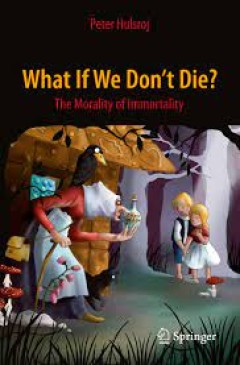
What If We Don't Die? The Morality of Immortality
This book deals with the very real possibility of earthly immortality and the human and societal implications of such immortality, including whether it is desirable. It looks at what makes immortality appear so attractive and at the possibility that we would be better served with longer lives and the freedom to terminate our lives at the time when life has given us all the joy, inspiration a…
- Edition
- -
- ISBN/ISSN
- 978-3-319-19093-8
- Collation
- VIII, 183
- Series Title
- -
- Call Number
- -
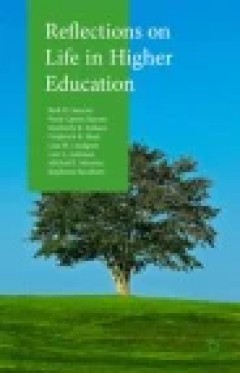
Reflections on Life in Higher Education
This book explores the challenges of an academic teaching career. The authors discuss the issues that may arise in the tenure process, scholarship activities, publishing, and providing service to their academic communities as well as how to keep teaching lessons relevant and fresh.
- Edition
- -
- ISBN/ISSN
- 978-1-137-56045-2
- Collation
- -
- Series Title
- -
- Call Number
- 370.1

The Virtues of Disillusionment
Most people go through life chasing illusions of success, fame, wealth, happiness, and few things are more painful than the reality-revealing loss of an illusion. But if illusions are negative, why is the opposite, being disillusioned, also negative? In this essay based on his inaugural writer-in-residence lecture at Athabasca University, internationally acclaimed writer Steven Heighton mathema…
- Edition
- -
- ISBN/ISSN
- 9781771993265.01
- Collation
- -
- Series Title
- -
- Call Number
- 5 x 8, 48 pages
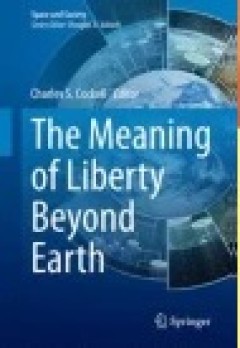
The Meaning of Liberty Beyond Earth
The purpose of this book is to initiate a new discussion on liberty focusing on the infinite realms of space. The discussion of the nature of liberty and what it means for a human to be free has occupied the minds of thinkers since the Enlightenment. However, without exception, every one of these discussions has focused on the character of liberty on the Earth. The emergence of human space expl…
- Edition
- -
- ISBN/ISSN
- 978-3-319-09567-7
- Collation
- VIII, 272
- Series Title
- Space and Society
- Call Number
- -

Altruism, Welfare and the Law
This book is an assault on the notion that it is empirically accurate and legally and philosophically satisfactory to see humans as atomistic entities. It contends that our welfare is inextricably entangled with that of others, and accordingly law and ethics, in determining our best interests, should recognise the central importance of relationality, the performance of obligations, and (even ap…
- Edition
- Ed. 1
- ISBN/ISSN
- 978-3-319-21605-8
- Collation
- IX, 82
- Series Title
- SpringerBriefs in Law
- Call Number
- 340.1 FOS a

Alternative Theoretical Frameworks for Mathematics Education Research: Theory…
This book explicates some of the fundamental philosophical tenets underpinning key theoretical frameworks, and demonstrates how these tenets inform particular kinds of research practice in mathematics education research. We believe that a deep understanding of significant theories from the humanities and social sciences is crucial for doing high-quality research in education. For that reason, t…
- Edition
- Ed. 1
- ISBN/ISSN
- 978-3-319-33961-0
- Collation
- IX, 193
- Series Title
- -
- Call Number
- 510.07 FRE a
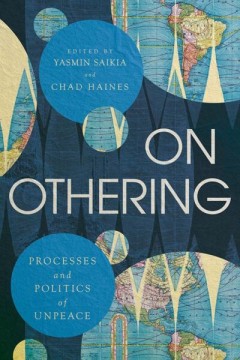
On Othering Processes and Politics of Unpeace
In every sphere of life, division and intolerance have polarized communities and entire nations. The learned construction of the Other—an evil “enemy” against whom both physical and discursive violence is deemed acceptable—has fractured humanity, creating divisions that seemingly defy reconciliation. How do we restore the bonds of connection among human beings? How do we shift from pola…
- Edition
- -
- ISBN/ISSN
- 9781771993876
- Collation
- -
- Series Title
- Global Peace Studies
- Call Number
- 6 x 9, 360 pages

How to Read Like You Mean It
In this candid and concise volume, Kyle Conway, author of The Art of Communication in a Polarized World, considers how we can open ourselves to others and to ideas that scare us by reading difficult texts. Conway argues that because we resist ideas we don’t understand, we must embrace confusion as a constitutive part of understanding and meaningful exchange, whether between a reader and a tex…
- Edition
- -
- ISBN/ISSN
- 9781771993753
- Collation
- -
- Series Title
- Cultural Dialectics
- Call Number
- 6 x 9, 184 pages

The Great Council of Malines in the 18th century
This work studies the Great Council of Malines as an institution. It analyzes the Council’s internal organization and staff policy, its position within the broader society of the Austrian Netherlands, the volume and nature of litigation at the Council and its final years and ultimate demise in the late 18th and early 19th century. By means of this institutional study, this volume provides ins…
- Edition
- -
- ISBN/ISSN
- 978-3-319-09638-4
- Collation
- XVII, 348
- Series Title
- Studies in the History of Law and Justice
- Call Number
- -
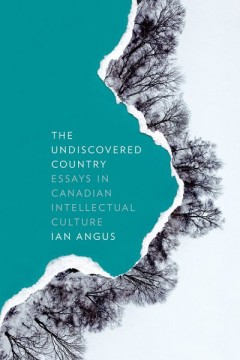
The Undiscovered Country Essays in Canadian Intellectual Culture
In this sequence of essays, Ian Angus engages with themes of identity, power, and the nation as they emerge in contemporary English Canadian philosophical thought, seeking to prepare the groundwork for a critical theory of neoliberal globalization. The essays are organized into three parts. The opening part offers a nuanced critique of the Hegelian confidence and progressivism that has come to …
- Edition
- -
- ISBN/ISSN
- 9781927356326.01
- Collation
- -
- Series Title
- -
- Call Number
- 306 pages
 Computer Science, Information & General Works
Computer Science, Information & General Works  Philosophy & Psychology
Philosophy & Psychology  Religion
Religion  Social Sciences
Social Sciences  Language
Language  Pure Science
Pure Science  Applied Sciences
Applied Sciences  Art & Recreation
Art & Recreation  Literature
Literature  History & Geography
History & Geography